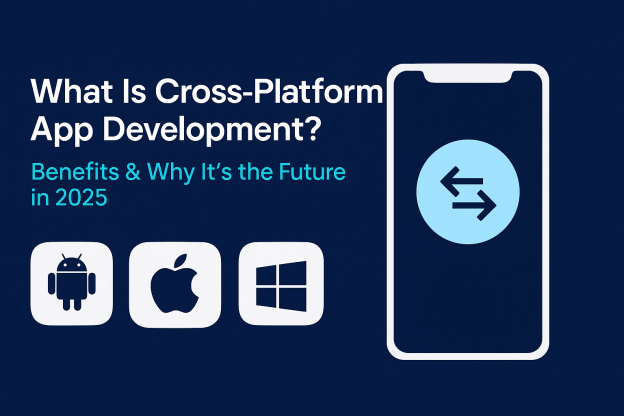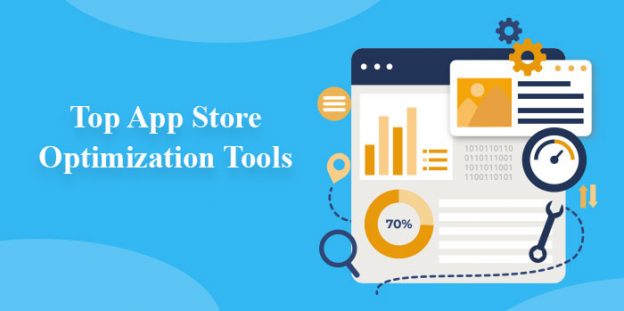Why are React-Native Powered Applications the Future of Mobile App Development?

Whenever a business considers the development of an app to serve mobile users, the prime question that pops up, is whether to go for the Android or iOS platform. Android apps are cost-effective to develop and run for business while iOS apps are comparatively on the costlier side in terms of development and maintenance. But iOS apps are known to provide the best user experience to users. Both have their own advantages so it is a little tricky to choose. With the advent of Hybrid mobile apps, it has become possible for business owners to have both apps at one app’s cost.
Hybrid apps are known to get developed & deployed easily and at the same time, provide a great user experience. The most emerging technology for hybrid app development is Facebook-backed React Native. Let’s see how it is slowly taking over the market with its ability to offer the best and cost-effective solutions.
Cross-Platform Compatibility:
React Native was originally developed to support the iOS platform but with its success and demand, it extended its application to the Android platform. Facebook has made it open source and hence it has become easy for the developers to use its prospects for cross-platform development for Windows & tvOS. Most of the APIs on React Native is for cross-platform usage which allows developers to make single code base work on both Android and iOS. If you are a mobile application developer, you can use React Native to write fast and clean mobile apps from a single JavaScript codebase. In comparison to the standard Android and iOS development, it is said that React Native offers a much better and stronger developer experience.
Reusing Codes:
One of the most appreciated benefits of using React Native is Code reusability. Developers tend to save a lot of time as they do not have to work separately for different platforms. Interestingly, you can also use your website development code for mobile app development if it is written in React. You can also use the pre-developed components available in the open-source library of ReactNative which reduces the time of development significantly as the developers do not have to code the whole app from scratch. In all, most of the code is already written and you have to just spend time in the implementation according to the app requirements.
Developer’s choice:
React Native is most of the developers’ choice as it is based on Javascript that most of them already know unlike iOS apps for which one has to learn Swift, Objective C or Android for which Java is required. Apart from learning, its library gives you an enormous amount of tools and features for debugging, styling, deployment and more. Development can be started very easily after the developer familiarizes himself/herself with native UI elements, design features and specific APIs. It is also developer-friendly because it allows modifications even when the app is running and on reloading the app gets refreshed.
It has a large developers community as it is based on Javascript so most of the developers can contribute. The support of the developers’ community facilitates developers to seek help whenever they get stuck anywhere in coding. Also, they can share their experiences and portfolio on these platforms so as to get better coding opportunities. There is a great platform called GitHub React Native community which allows developers to share their experience and at the same time receive reviews, responses and feedback. Since React Native has been given birth by Facebook, you can also get extended support from the social media giant.
Third-Party Plugins Compatibility:
Due to the good compatibility of React Native with third-party plugins, there is no need for the app to employ WebView for particular features like maps. The framework has the capability to link the third-party plugin with a native module through which device features like zoom, tap, rotate can be used with minimum usage memory ensuring quick load time. It also offers a good UX even if the app is being operated on old operating systems.
Live and Hot Reloading:
Live reloading is a tool that ensures compiling and reading the file where the changes have been made by the developer. Hot reloading which is based on the Hot Module Replacement can put the changed files at particular places while the app is running. It allows alteration of the source code and you do not even need recompilation of the app to see the code. Using React Native can make you take advantage of these two features. You can see the outcome of changes instantly if there are multiple windows opened including the app screen and code. It leads to a significant reduction in waiting time for developers to see the changes.
Cost-effectiveness:
As we have already mentioned that it is a cross-platform framework using which you do not have to spend in developing different applications for different platforms. You just need one good developer to carry out all the functions and one project handling team. Due to a reduction in team size, there would also be better communication while project development and deployment.
Modular programming:
React Native supports modular programming that segregates the functions of a program in different interchangeable free blocks which are called modules. It makes the overall development flexible. The react native developers can easily upgrade the apps at a good pace due to this feature.
Apart from the major advantages, React Native gives you the best ready-made solutions list and libraries to simplify your task. It is a widely accepted technology for modern developers and is easy to learn as well. It also helps in building attractive and elegant UI which are not lesser in any way than native apps. It offers optimal performance through native control and modules. Slowly and steadily, it is becoming a choice for developers due to its fantastic performance and easy-to-use quality. Though, it is not that powerful from a security point of view.







